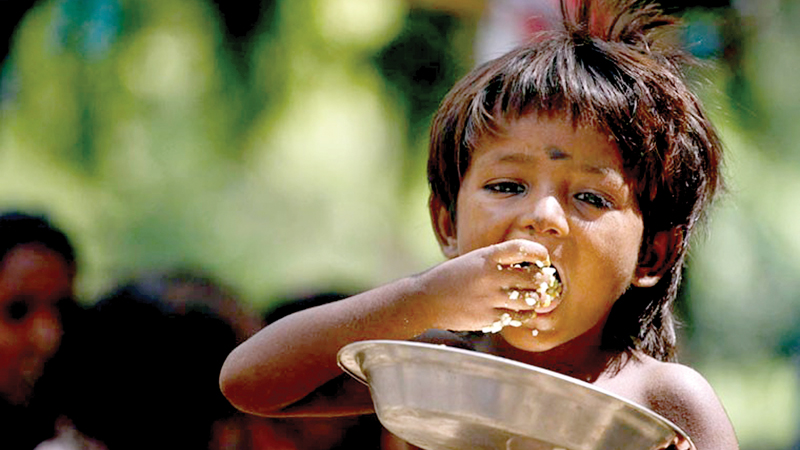 Good nutrition is currently the focus of attention in Sri Lanka with the Government determined to ensure that all segments of the population irrespective of class, creed or age have access to healthy diets and good nutrition.
Good nutrition is currently the focus of attention in Sri Lanka with the Government determined to ensure that all segments of the population irrespective of class, creed or age have access to healthy diets and good nutrition.
While Sri Lanka is blessed with year- round seasonal fruits and vegetables, sadly many people are still ignorant of the extremely important role that good nutrition plays in ensuring life-long health and immunity against diseases. The result is an upward curve in malnutrition in adults and children
The Sunday Observer approached Colombo University Paediatrics Department Neonatology Professor and Consultant Neonatologist at De Soyza Hospital for Women in Colombo, Nishani Lucas to discuss the importance of infant and child nutrition and its sustainable management.
Excerpts of the interview
Q: As an expert in child nutrition, why do you think nutrition is crucial for Sri Lanka at this point of time?

Prof. Nishani Lucas
A: Optimal nutrition in the first 1,000 days of life -the first years from the day of conception – plays a vital role in optimising brain development in the child. This includes exclusive breastfeeding until six months are completed and quality complementary food thereafter.
Q: Despite many inputs by various Governments in the past, the Health Ministry continues to face the double burden of malnutrition. What are the reasons for this?
A: The double burden of malnutrition comprises under-nutrition as well as over-nutrition. Poor food choices are a leading contributor.
The use of infant formula in place of mother’s milk increases the risk of obesity and cancer in both the baby and the mother, while increasing the risk of infection, allergy and non-communicable diseases in children.
Delays in starting quality animal protein such as eggs, meats and fish due to myths and superstitions lead to difficulties in obtaining the protein and iron required for growth in young children, thereby increasing the risk of under-nutrition and nutritional deficiencies.
The use of processed food and fast food, often high in salt and sugar, instead of home-cooked meals is another important cause for nutritional deficiencies in protein, vitamin and minerals combined with an increased risk of obesity.
Q: Is poverty a contributor?
A: While extreme poverty in an urban dweller can be a contributor, it is more often poor management of finances within the family and poor food choices that contribute to poor nutritional status.
A family that buys formula milk and baby rusks, rather than utilising that money to buy fish, meat, eggs, poultry or fruits, is an example of a poor food choice.
Q: Although we are a literate country there are pockets of illiteracy where people do not even know basic facts on nutrition. Do you agree?
A: Yes, that is unfortunately true. Although Sri Lanka has a strong public health system, where public health midwives do house visits and advise on infant feeding while monitoring and weighing young children in the comfort of their homes, there are some groups of people who do not follow any health advice nor attend MOH clinics for growth monitoring or immunisation.
Q: There are several myths circulating on nutrition with regard to food that should be given to growing children and pregnant women. Could you share some of the more common myths that you have come across in your work?
A: The belief that giving children expensive formula milk will result in better health is a myth. Formula milk has been clearly shown to have adverse health risks including increasing the risk of infection, cancer, obesity, diabetes and hypertension.
It is a myth that it is bad to start animal proteins before the child is an year-old. This results in deficiencies in protein energy and iron, as the best source of iron is animal-based food. Animal protein should be started at the beginning of seven months along with rice, vegetables and fruit to ensure balanced nutrition.
Superstitions such as ‘giving a meal after sundown invokes evil spirits’, are also myths. This leads to a crowding of meals during the day, where all meals are given between 10am and five pm, not giving a chance for the child to feel hungry. It decreases the child’s food intake thus increasing the chance of force feeding, and thereby creating an unpleasant feeding environment.
It is important to spread the meals throughout the day for the young child, starting from early morning when the child wakes up till night before the child goes to bed, so that there is adequate spacing between meals, to enable the child to feel the hunger and thus consume the food that is given.









